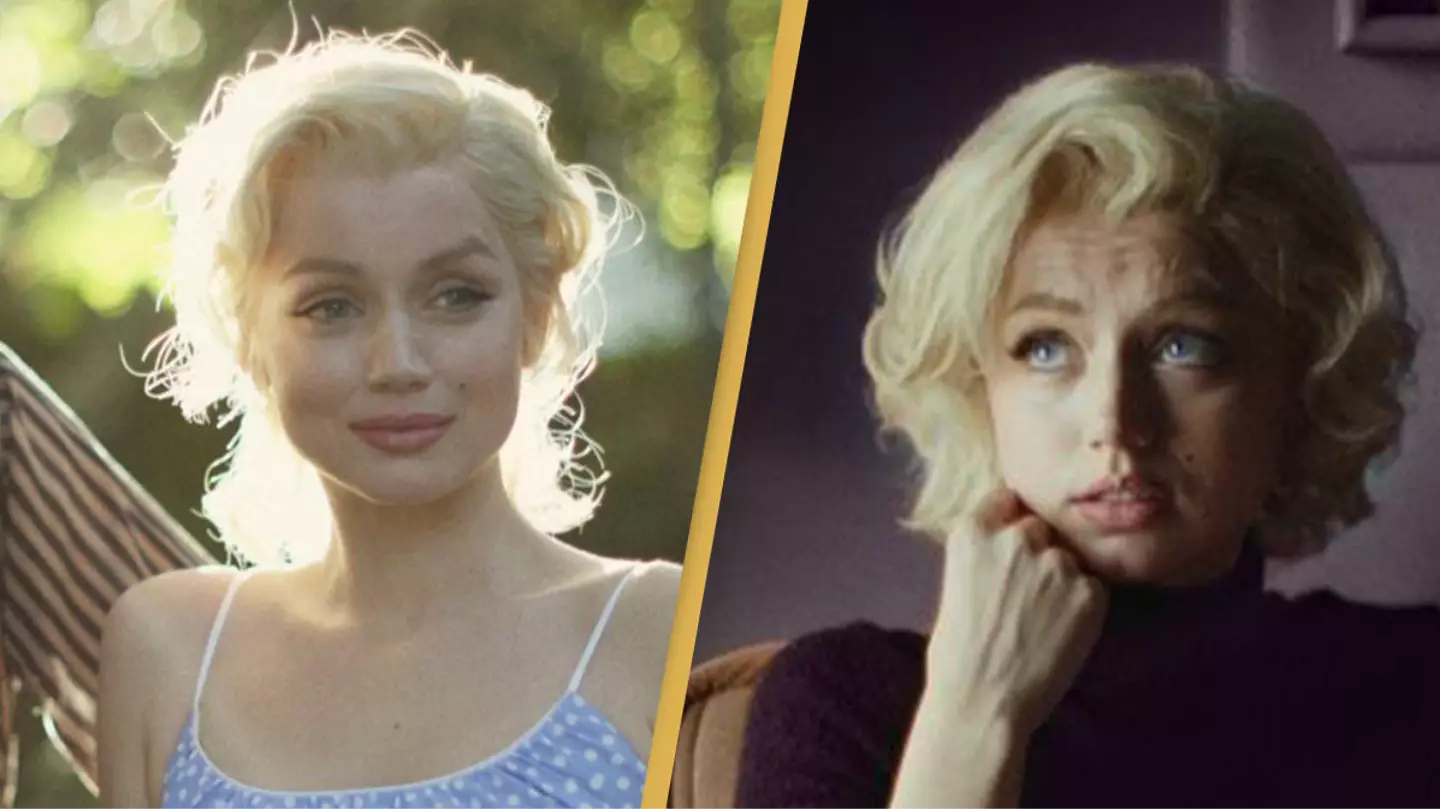
The author of Blonde has spoken out following the outrage the recent Netflix release has caused.
Blonde - starring Knives Out actor Ana de Armas - was eagerly anticipated by Marilyn Monroe fans all across the globe.
Alas, within only the first 20 minutes of viewing the fictionalised biopic drama, many viewers abruptly switched it off.
Advert
The film - first released onto Netflix on 23 September, 2022 - has since been the subject of widespread controversy online, with one scene even branded 'vomitous' and others having reviewed the entire movie as 'unwatchable'.
And the author of the 2000 novel the film is based on, Joyce Carol Oates, has since given her review of the film.
Many viewers have brandished the film as being 'anti-abortion, so sexist [and] so exploitative'.
Other users heavily criticised the film's director, Andrew Dominik, and accused him of projecting his own 'wet dreams' into the film, personally 'hating' Monroe, and turning the film not into a biopic, but an 'assault'.
One viewer wrote the film 'was nothing but disgusting and a disgrace to Marilyn’s legacy'.
Contrary to the widespread negative views across social media, Oates shared a different perspective.
When asked for her overall review of Blonde, she said: "I think it was/is a brilliant work of cinematic art obviously not for everyone. surprising that in a post#MeToo era the stark exposure of sexual predation in Hollywood has been interpreted as 'exploitation'.
"Surely Andrew Dominik meant to tell Norma Jeane's story sincerely."
When questioned as to how full-on her involvement was in creating the Netflix film, Oates revealed that she wasn't as involved as everyone might have first thought.
"I just saw the final version of Blonde last night on Netflix; I had seen an earlier, incomplete version on my computer a year ago," she said.
However, the author's lack of involvement in the film didn't take away from her view as to what sort of lens it might be best viewed.
Another Twitter user said that anyone who has heavily criticised Blonde and focused too much on Monroe as opposed to Norma Jean had 'missed the point' of the film.
And Oates replied: "The best place to see Marilyn Monroe is in her films, in which she performed brilliantly as 'MM' she rarely failed to live up to expectations.
"In Andrew Dominik's 'Blonde' the performer is the subject, not the performance. there was a reason that 'MM' took her own life."
However, Oates noted how she sympathised with those who might have misread the film, adding that it's 'understandable that admirers of a gifted actor confuse performance with performer'.
"Perhaps only the performer understands the great gap between the performance (which is public) & the performer (who is obliged to live up to expectations & may despair at falling short)," the author added.
She also stated: "Andrew Dominik may have believed he was making a post-#MeToo era film in 'Blonde' that would be recognized as exposing male cruelty & sexual abuse of women & the denigration of Marilyn Monroe as a victim driven finally to take her own life. but the exposure is called exploitation."
If you’ve been affected by any of these issues and want to speak to someone in confidence, please don’t suffer alone. Call Samaritans for free on their anonymous 24-hour phone line on 116 123
Topics: Film and TV, Netflix